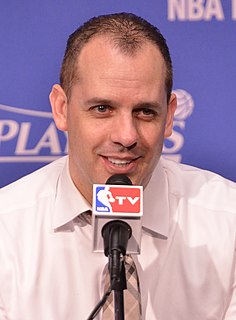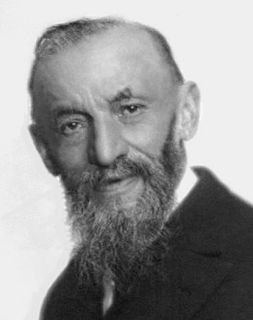A Quote by Paolo Bacigalupi
I have friends who are science journalists, and I'm seeing stories of theirs or talking with them about ideas that they're pitching. Certain kinds of science are around me all the time, like climate change and biology.
Related Quotes
I wanted to be a scientist. My undergraduate degree is in biology, and I really did think I might go off and be some kind of a lady Darwin someplace. It turned out that I'm really awful at science and that I have no gift for actually doing science myself. But I'm very interested in others who practice science and in the stories of science.
I’ve often said that global climate change is an issue where no one has the luxury of being “half-pregnant.” You either are or you aren’t. And so it is with climate change. You either understand and accept the science – or you don’t. Folks this isn’t a cafeteria where you can pick and choose and accept the science that tells us what is happening, but then reject the science that warns us what will happen.
Science is the key to our future, and if you don’t believe in science, then you’re holding everybody back. And it’s fine if you as an adult want to run around pretending or claiming that you don’t believe in evolution, but if we educate a generation of people who don’t believe in science, that’s a recipe for disaster. We talk about the Internet. That comes from science. Weather forecasting. That comes from science. The main idea in all of biology is evolution. To not teach it to our young people is wrong.
I don't like to claim that I am an expert on anything, but I have enough knowledge about climate science and climate system to be able to write scientific papers and go to meetings and talk about monsoon systems and talk about any other things that you want to discuss about climate science issues. I'm as qualified as anybody that you know on this planet on this topic.
Despite the international scientific community's consensus on climate change, a small number of critics continue to deny that climate change exists or that humans are causing it. Widely known as climate change "skeptics" or "deniers," these individuals are generally not climate scientists and do not debate the science with the climate scientists.
I can think of very few science books I've read that I've called useful. What they've been is wonderful. They've actually made me feel that the world around me is a much fuller, much more wonderful, much more awesome place than I ever realized it was. That has been, for me, the wonder of science. That's why science fiction retains its compelling fascination for people. That's why the move of science fiction into biology is so intriguing. I think that science has got a wonderful story to tell.
In every science, after having analysed the ideas, expressing the more complicated by means of the more simple, one finds a certain number that cannot be reduced among them, and that one can define no further. These are the primitive ideas of the science; it is necessary to acquire them through experience, or through induction; it is impossible to explain them by deduction.






































